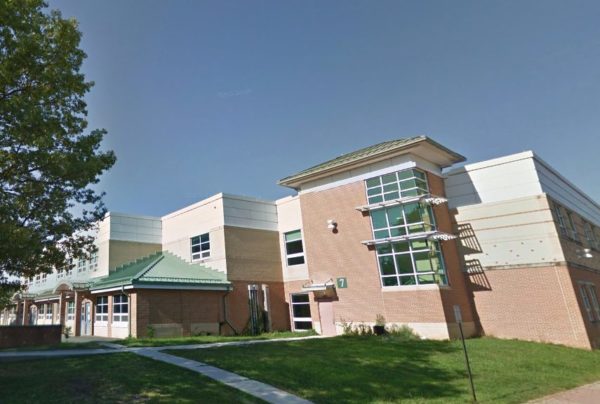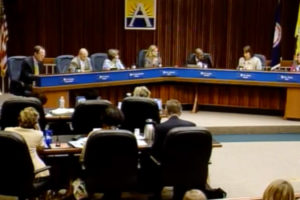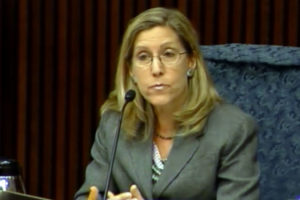
A recent Miss Arlington is competing in the finals of the Miss America competition this week.
Last year’s Miss Arlington, Victoria Chuah, is looking to add another crown to her collection on Thursday. She is set to compete against 50 others, including Miss District of Columbia, for the title of Miss America.
In December 2021, Chuah won the title of Miss Arlington. Then, in June, she was crowned Miss Virginia.
Chuah, 22, says that one of the biggest reasons that she’s competing is to help pay off student loans.
“I definitely don’t think people realize it’s a scholarship organization. Miss America gets $50,000 and the runners-up also get tens of thousands of dollars in scholarship money,” Chuah told ARLnow earlier this week while participating in the competition’s preliminary rounds. “So that’s a huge reason why so many, so many of the young women are competing.”
So far, she’s won more than $35,000 in scholarship money over the last year which helped her finish her master’s degree in computer science this past May.
Her career ambition is to become a chief technology officer for a Fortune 500 company.
Chuah is actually a Loudoun County resident but chose to compete in the Arlington competition due to the “great reputation for preparing candidates very well” as well as having one of the highest scholarship prizes available in the state.
To be eligible to compete in Miss Arlington, one only has to reside, work, or attend classes full-time in Virginia.
Chuah is not the first Miss Arlington to compete for Miss America. Caressa Cameron won the national crown in 2010.
The national competition is similar to the local competitions in terms of preparation and judging. Candidates submit a resume, a “social impact statement,” and go through a short interview leading up to the finals. In the finals, they are asked about a social cause that’s important to them and would be the focus of their year of service.
For Chuah, that’s advocating and creating awareness about adults with autism.
“My younger brother, Luke [has autism] and he actually just turned 20 a few weeks ago. As he’s become an adult, it’s so clear how few programs there are for adults with autism,” Chuah said. “There are so many adults with autism, and it’s normally seen as something [impacting] children, but all these children are growing up into adults and there’s no clear pathway for them as once they get older.”
During the finals, competitors showcase a talent, walk the red carpet in evening wear, and answer a question that’s not known in advance on stage.
Chuah’s talent is ballet, an art she’s been perfecting her “entire life.”
Over the last year, since being crowned both Miss Arlington and Miss Virginia, Chuah has been traveling around the state advocating for people like her brother Luke and encouraging young women to further their science, technology, engineering, and mathematics (STEM) education.
Earlier this year, she was appointed to the Virginia STEM Education Advisory Board and sworn in by Gov. Glenn Youngkin. Chuah is also the first Chinese-American woman to be named Miss Virginia.







